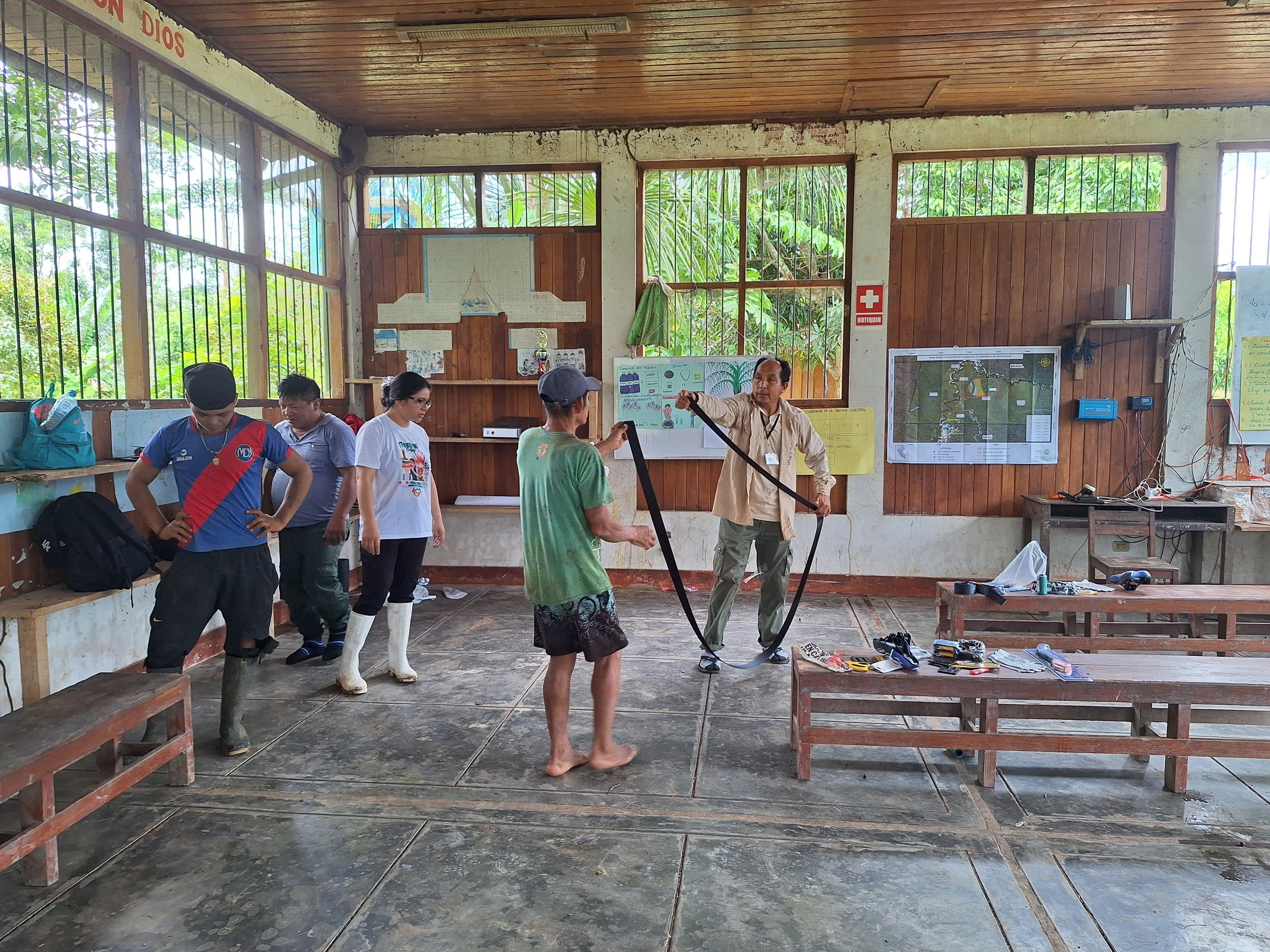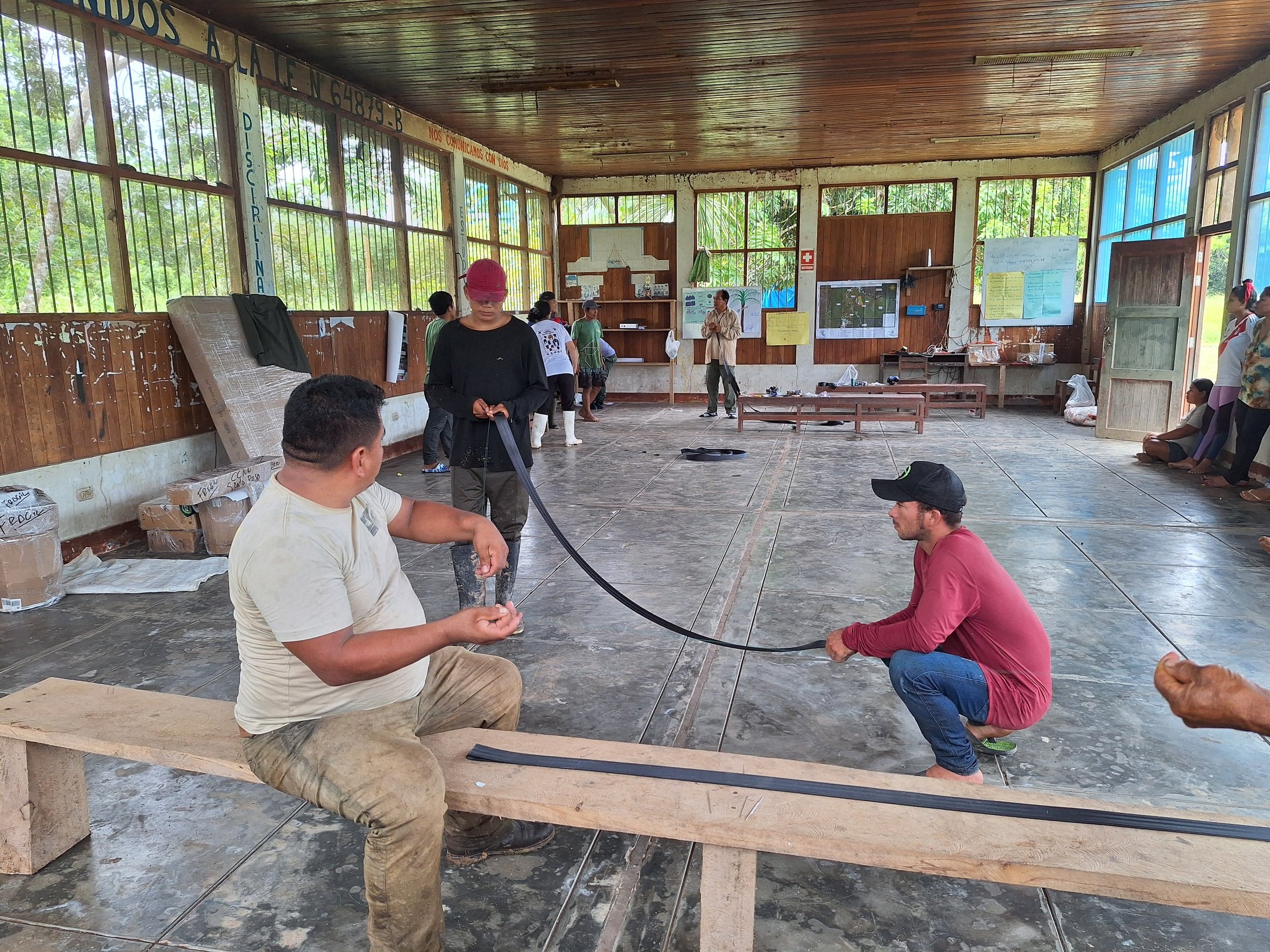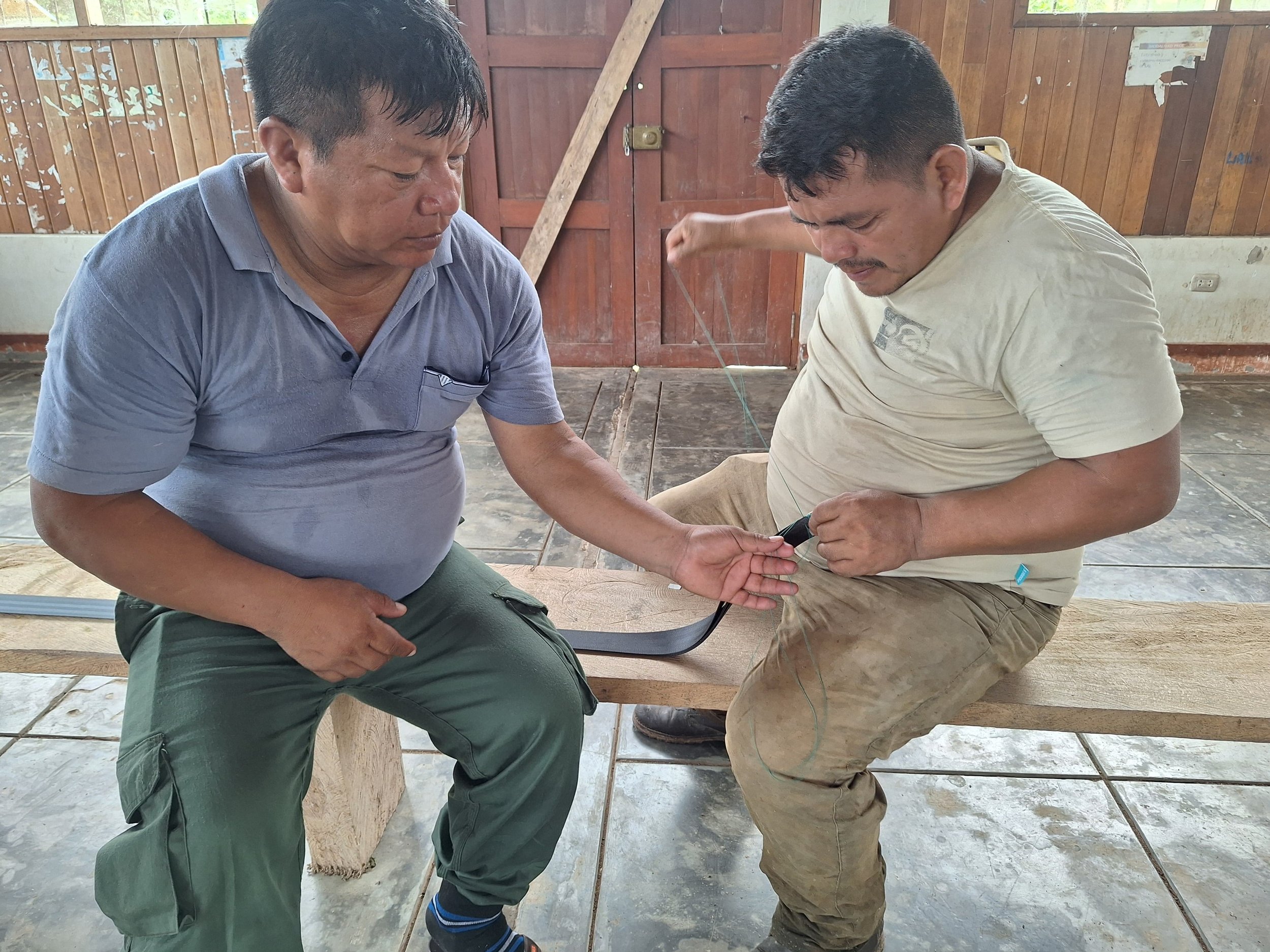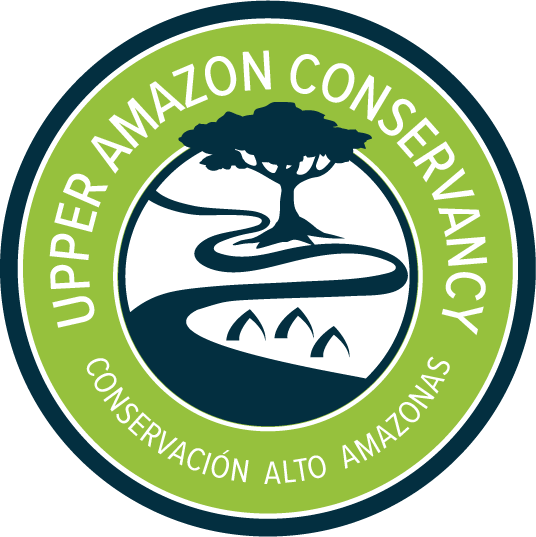The Community of Santa Rosa Bets on Acai: Working Towards its Sustainable and Productive Management
Community members learn to make climbing harnesses for açaí harvesting.
From February 15 to 18, 2025, the Amahuaca native community of Santa Rosa of the Yurua River welcomed a technical team from SERNANP and UAC to assess the acai (Euterpe precatoria) populations on their lands, a key palm species for both food security and income generation. Through a field assessment and a workshop on sustainable management, community members strengthened their knowledge of this species and its responsible use. The activity also included participants from the Asheninka community Dulce Gloria, along with Fernando Aroni, chief of Santa Rosa and president of the Indigenous Federation of the Yurua River, ACONADIYSH.



Community members learn to make climbing harnesses for acai harvesting.
The assessment covered eight plots in Santa Rosa near the Yurua River, analyzing acai’s population density, natural regeneration, and productivity. One of the most significant findings was the collection of an 11-kg fruit cluster, indicating the high potential for acai production in these forests. This evidence reinforces that, with proper management, acai could become a sustainable source of food and income for local communities.
During the workshop, community members not only deepened their knowledge of harvesting and reforestation but also gained a better understanding of acai’s role in local biodiversity. Recognizing its importance, members of the Dulce Gloria community took seeds home to start reforesting their own lands. This is a great example of productive knowledge exchange between different communities interested in the sustainable and productive management of natural resources.
For the Federation president, Aroni, this initiative marks a milestone in his community’s natural resource management:
"This collaboration with SERNANP and UAC is a dream come true for our community. It has allowed us to recognize the potential of acai as a source of both food and health. Now, we feel proud and motivated to continue this work, ensuring that in the future, our children will take the lead in managing acai and other valuable species."
This initiative not only aims to strengthen the community’s food sovereignty but also opens opportunities to commercialize acai pulp and other derived products, taking inspiration from other communities in the region. The training sparked great interest among community members, who expressed a desire to learn more about managing other valuable species such as ungurahui (Oenocarpus bataua) and cinamillo (Oenocarpus mapora).
Santa Rosa has taken an important first step toward the sustainable management of its resources. With more initiatives like this, the community continues to advance toward a conservation model that ensures a balance between community well-being and forest protection.




